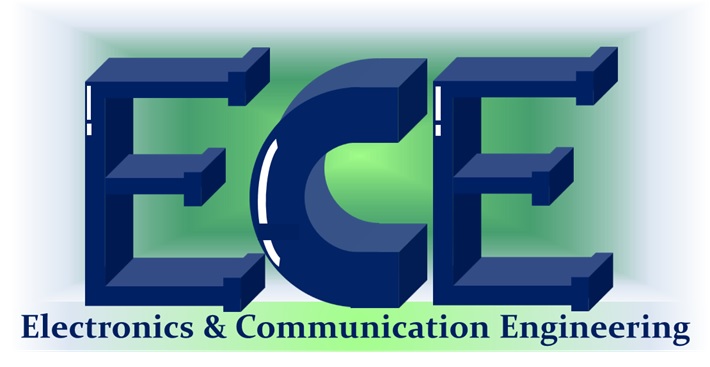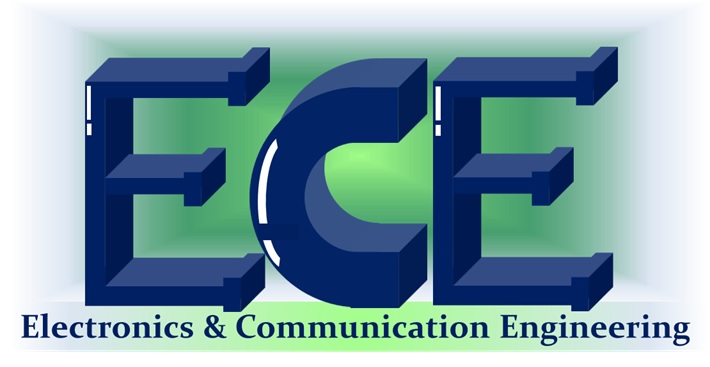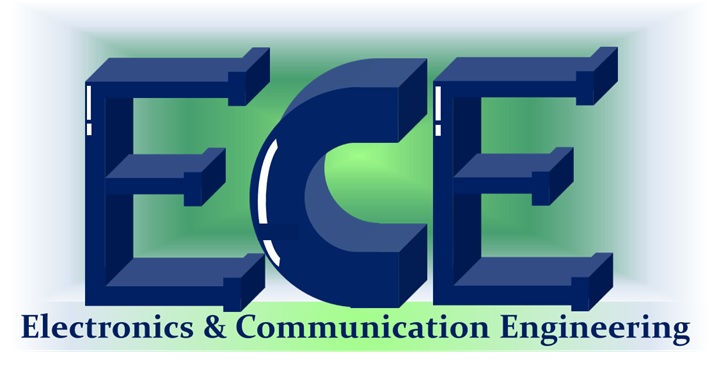- ABOUT DEPARTMENT
- HEAD OF THE DEPARTMENT
- VISION AND MISSION
- OBJECTIVES AND OUTCOMES
- COURSES
- FACULTY
- FACILITIES AND ASSETS
- ACTIVITIES
- ACHIEVEMENTS
- SCHEDULES
- DEPARTMENT DASHBOARD
The
department of Electronics and Communication Engineering was established in 2001
with an intake of 60 students in the UG Programme. The department has good
infrastructure facilities and is equipped with full-fledged laboratories. The
department also has full-fledged audio-visual facilities with ICT tools for
effective teaching. The members of staff are dedicated and enthusiastic towards
innovative teaching and learning practices with ICT tools usage. The faculty
members are actively involved in research and innovative activities and
encouraged in publishing their articles in highly reputed journals &
conferences. Faculty members are sponsored to participate in various workshops,
conferences and refreshers courses to keep in place with recent developments in
the field of Electronics & Communication Engineering under faculty
development programme.
Our
ECE students are highly inspired in research paper writings and to participate
in paper presentation contest, Conferences organized at various institutions,
organizations. The department is
organizing various workshops, hackathons, seminars and webinars on recent
advances & design challenges of the core areas of ECE. As a part of the
curriculum, Industrial visits are arranged for students to upgrade their skill
and knowledge. We provide the special training and guidance for our students
about their placements and higher education opportunities along with the
regular academic activities.
VISION
The Department endeavors to facilitate state of the art
technical education in the field of Electronics and Communication
Engineering by infusing scientific temper in the students leading towards
research and to grow as center of excellence in the field.
MISSION
a) To be the epitome
of academic rigor, flexible to accommodate every student and faculty for basic,
current and future technologies in Electronics and Communication Engineering.
b) Strengthening and providing support in sustaining a healthy
society by improving the quality of life through the application of technology.
PROGRAM EDUCATIONAL OBJECTIVES(PEOs) | |
PEO1 | Graduates will be able to synthesize mathematics, science, Engineering fundamentals, laboratory and work - based experiences to formulate and solve engineering problems in Electronics and Communication Engineering domains and shall have proficiency in computer-based engineering and use of computational tools. |
PEO2 | Graduates will succeed in entry/level engineering positions within the core Electronics and Communication Engineering, computational or manufacturing firms in regional, national or international industries and with government agencies. |
PEO3 | Graduates will be prepared to communicate and work effectively on team based engineering projects and will practice the ethics of their profession consistent with a sense of social responsibility.
|
PROGRAM OUTCOMES(POs) | |
PO1 | Engineering knowledge: Apply the knowledge of Mathematics, Science, Engineering fundamentals, and an Engineering specialization to the solution of complex Engineering problems. |
PO2 | Problem analysis: Identify, formulate, review research literature, and analyze complex engineering problems reaching substantiated conclusions using first principles of Mathematics, Natural sciences, and Engineering sciences |
PO3 | Design/development of solutions: Design solutions for complex engineering problems and design system components or processes that meet the specified needs with appropriate consideration for the public health and safety, and the cultural, societal, and environmental considerations. |
PO4 | Conduct investigations of complex problems: Use research-based knowledge and research methods including design of experiments, analysis and interpretation of data, and synthesis of the information to provide valid conclusions. |
PO5 | Modern tool usage: Create, select, and apply appropriate techniques, resources, and modern engineering and IT tools including prediction and modeling to complex engineering activities with an understanding of the limitations |
PO6 | The engineer and society: Apply reasoning informed by the contextual knowledge to assess societal, health, safety, legal and cultural issues and the consequent responsibilities relevant to the professional engineering practice. |
PO7 | Environment and sustainability: Understand the impact of the professional engineering solutions in societal and environmental contexts, and demonstrate the knowledge of, and need for sustainable development. |
PO8 | Ethics: Apply ethical principles and commit to professional ethics and responsibilities and norms of the engineering practice. |
PO9 | Individual and team work: Function effectively as an individual, and as a member or leader in diverse teams, and in multidisciplinary settings. |
PO10 | Communication: Communicate effectively on complex engineering activities with the engineering community and with society at large, such as, being able to comprehend and write effective reports and design documentation, make effective presentations, and give and receive clear instructions. |
PO11 | Project management and finance: Demonstrate knowledge and understanding of the engineering and management principles and apply these to one’s own work, as a member and leader in a team, to manage projects and in multidisciplinary environments. |
PO12 | Life-long learning: Recognize the need for, and have the preparation and ability to engage in independent and life-long learning in the broadest context of technological change. |
PROGRAM SPECIFIC OUTCOMES(PSOs) | |
PSO1 | Professional skills: an ability to understand the basic concepts in electronics and communication engineering and to apply them to various areas, like electronics, communications signal processing, VLSI, embedded system etc, in the design and implementation of complex system |
PSO2 | Problem –solving skills: An ability to solve complex electronics and communication engineering problems, using latest hardware and software tools, along with analytical skills to arrive cost effective and appropriate solutions |
PSO3 | Successful Career and Entrepreneurship: An understanding of social-awareness and environmental wisdom along with ethical responsibility to have a successful career and to sustain passion and zeal for real-world applications using optimal resources as an Entrepreneur. |
Course outcomes: click here
|
S.NO |
PROGRAMS |
DURATION |
INTAKE |
|
1 |
B.Tech (ECE) |
4 years |
60 |
Under development
NPTEL
NPTEL has also initiated open online courses with certification where courses in different domains are regularly launched. NPTEL is now offering online certification courses through its portal https://onlinecourses.nptel.ac.in. There are 4wk, 8wk as well as 12wk courses offered twice a year. At the end of the course a certification exam (optional) is held on specific dates at specific centers. Certificate from IIT is awarded to those who register and appear for the examination. These exams have nominal fees with facility of scholarship and partial fee waiver for SC/ST candidates.We are glad to announce that our institution now also have approved NPTEL local chapter from Jan 2018 and coordinated by Dr.B.Sridhar, Professor, Dept of ECE (https://nptel.ac.in/LocalChapter/statistics/1541/).This will facilitate our students and faculties to use NPTEL contents better, apply for scholarships. All are invited to be part of this and take benefits.
NPTEL Course Enrollment A.Y 2024: Click here
List of Courses to enroll: Click here
SCIENT ECE STUDENT ASSOCIATION
The
department of Electronics and Communication Engineering students initiate to
start their own students association called “Scient ECE Association (SECEA)”
with a tagline ‘ Connecting Communication Engineers’.
Aim:
to create a platform for the students to connect together to promote
collaborative learning system
Objectives:
a) To create a platform for connecting all the students together
b) A platform to showcase their Leadership, management, skills
and talents
c) A platform to conduct various technical activities and prompt
the student’s participation
d) Improve the communication skills as well as presentation
skills.
e) Improve the interaction between the students to inculcate
team work spirit.
f) Improve the report writing skills and speaking skills,
e.t.c.,
Publications
|
AUTHORS |
TITLE |
JOURNAL
|
INDEXING |
DOWNLOAD |
|
Banothu
Bapuji-20C01A0407 Chettipally Venu-20C01A0411 Kora Sridhar-20C01A0429 Bommidi Sridhar-PROFESSOR ECE |
AES-256 Bits VLSI Design Using Virtex FPGA |
Journal of Technology |
Scopus and UGC CARE |
https://drive.google.com/file/d/197Y4Rsbolv-dhI5DdpUBND2724Nhcs7i/view?usp=sharing |
|
Prahas
Surabhi-20C01A0457 Bommidi
Sridhar-Professor ECE Gonrathi Naresh
-assistant Professor ECE Balaga Bhagavati Rao-assistant Professor ECE |
Architecture for Artificial Neural Network
Using Reversible Logic Gates |
Journal For Basic Sciences |
Scopus and UGC CARE |
https://drive.google.com/file/d/1mymcFn9IicaGIuUHP4voBghXoyUgEkqr/view?usp=sharing |
Certification Courses
|
Name |
Course |
organization |
Others |
|
Banothu Bapuji |
System design through Verilog |
NPTEL IIT GUWAHATI |
ELITE |
|
Banothu Bapuji |
VLSI System on chip Design |
Maven Silicon |
Online Course |
|
Banothu Bapuji |
Digital Electronics Fundamentals |
Mind Luster |
Online Course |
Dr. BOMMIDI SRIDHAR
Dr. Bommidi Sridhar is the Head of the Department of Electronics & Communication Engineering in Scient Institute of Technology, Ibrahimpatnam. He has an experience of 19 years in teaching. He graduated B.Tech in Electronics & Communication Engineering from Jawaharlal Nehru Technological University Hyderabad (JNTUH). He obtained his M.Tech in Digital Systems and Computer Electronics from JNTUH College of Engineering, JNTUH Hyderabad. He was awarded Doctorate for Novel Kernel Recursive Least Squares Approach for Efficient Spectrum Sensing to Cognitive Radio Applications from JNTUH, Hyderabad. He is a life member in professional bodies ISTE & IAENG and Member of IEEE. He published more than 22 research papers in various National and International journals/ conference proceedings. His areas of interest include Signal Processing and Communication, Embedded Systems, VLSI Design. He has guided many students for their projects under UG and PG programs. He had an Indian publication patents on the title “An Effective VLSI Architecture for Data Encryption Standard and its FPGA Implementation”. He had written textbook on "Electronics Measurements and Instrumentation” & “Fundamentals of IoT”. He attended and conducted many seminars, symposiums and workshops
Mobile No : 9985509244
Email ID : ece@scient.ac.in, ecescient234@gmail.com
Schedules
No Data Found
No Data Found
 Dept of ECE organizing a A Two day workshop on "VLSI Design using Tanner EDA tool" during April 24,25 - 2025 in association with Datapoint Info solutions, Hyd.
Dept of ECE organizing a A Two day workshop on "VLSI Design using Tanner EDA tool" during April 24,25 - 2025 in association with Datapoint Info solutions, Hyd.






